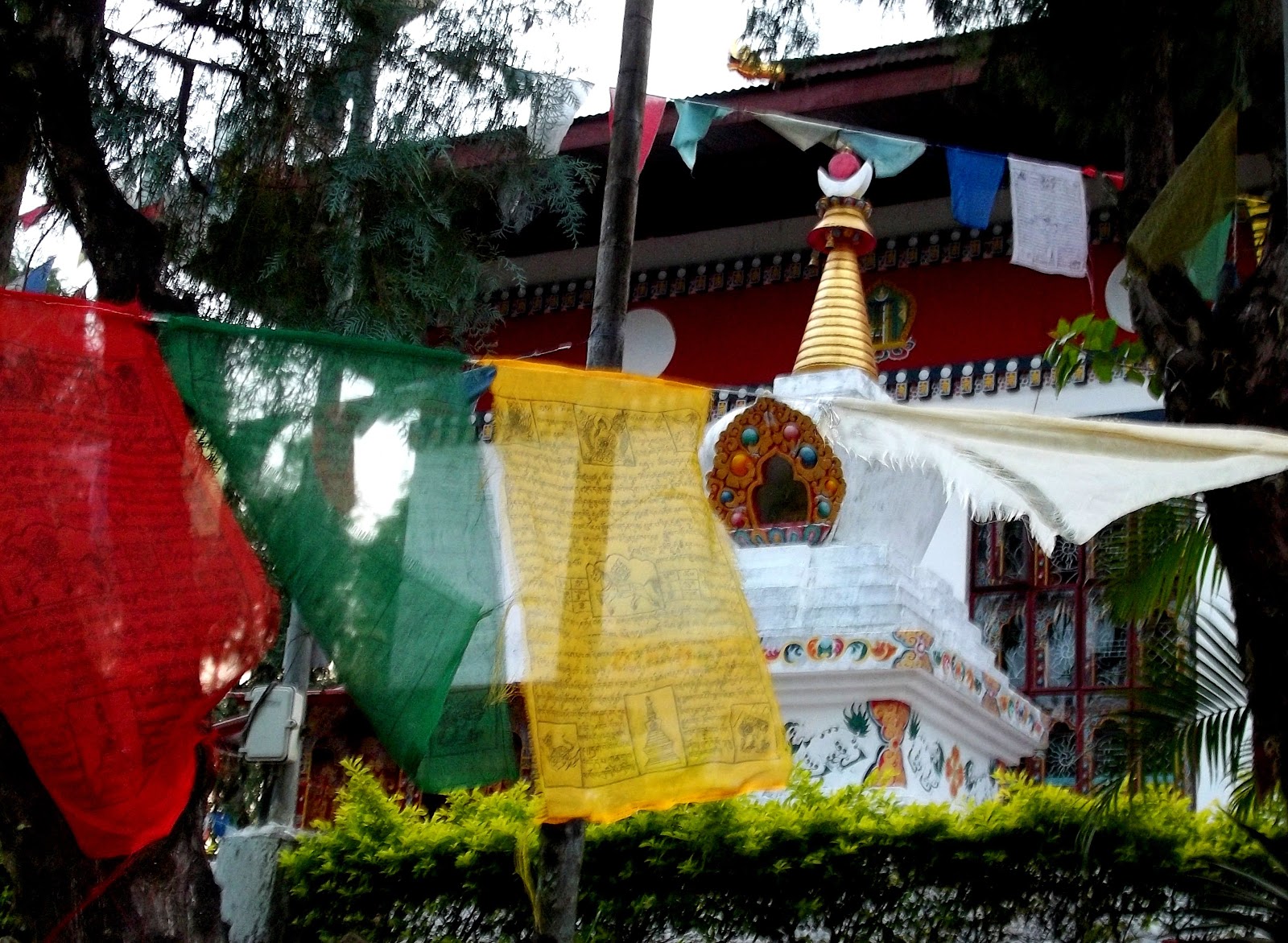Torsa
At Bhutan’s hillside edge, I stand
Looking
back at dusty plains,
While
summer’s sluggish water flows
In
a thirsty stream that waits for rains
Torsa
starts herein these hills,
One
more of Tibet’s glacial grace,
But
she seems wizened, tired too
Slow
and steady, there is no race
Perhaps
she knows, like her sisters here
Jaldhaka,
Kalijani on her sides,
They
will join the mighty Tsang po south,
Why
then the rush for faster strides?
Enjoy
the hills, the prayer-wheels’ peace
Cherish
the peace, perhaps she
says
It’s
not every day, you get to seep
In
the emerald greens, of Druk Yul days
I
look around, I smell the pines
Indeed
- what shame there is in slowing down?
A
traveller’s empty pockets of peace
Or
the weight of a golden jewelled crown?
Come
back to this spot, come back in time
Torsa
whispers in a sunset flow
When
you feel you’ve lost in the race of life
Come
back here to these waters slow….
31st
May 2025
Any
road-trip to the Himalayan wonderland of Bhutan needs to begin at the border
town of Phuentsholing. Even with eyes closed, you will realise when you have
crossed over from India’s Jaigaon to Bhutan’s Phuntsholing – the din and drama
effortlessly replaced by a quietude only occasionally punctured by the tinkle
of a monastic bell or the chant from a tiny gompa.
Looking
back, I consider myself fortunate to have worked for weeks in Phuntsholing, partaking
of Bhutanese languor, culture and of course, happiness – so far removed from
the non-stop throttle of a consultant’s life in Mumbai. Phuntsholing was a speed-breaker
that I have cherished for many a day even after returning back from Bhutan. It
was a sleepy, nondescript town with not much activity on – I remember, on a Friday
afternoon, with nothing more to do, I decided to take a rather steep hike to the
Kharbandi monastery on a precipitous hill at the edge of the town. It was at Kharbandi’s
heights that I saw the Torsa river for the first time - sluggish, bereft of
heavy volumes of water, but gracefully existent at the foothills of mountains from
which Bhutan’s borders began.
I
had seen Teesta river on many occasions – the most popular in north Bengal
(having crossed it atop the Coronation Bridge to arrive at Bhutan). Compared to
Teesta, Torsa was dwarfed, all similarities ending in the phonetics of the names.
While Teesta was turgid, turquoise, the thick brush-strokes of a painter’s
dream, Torsa seemed empty, sluggish, on the expansive bleached river banks of
time. My initial response was disappointment, but as I took a few steps back at
the monastery’s edge, I saw a bigger picture – lofty hills, summer’s expansive
skies, the soft colours of prayer flags, and in that frame, the golden threads
of Torsa’s waters glistening in the sunset. In a single moment, my emotions
changed – the picture looked complete, and I realised not all of life comes in preconceived
templates. That rivers, like humans, were all different, embodying different
emotions, thoughts and characteristics. Just as Buxa was all dried but flowing
through a shingled riverbed of beauty, just as Sutlej, incredibly turquoised,
would hurtle down through steep ravines; as Gomti was benevolently caring for a
parched Sitapur’s outskirts, or Lachen would collect the glacial melts of a
cold desert…
Every
river was different – and had a story if you could read it. On that Friday evening,
Torsa reminded that in the bounty of the Himalaya, the moment is enough, not
the measure – in a fabric where every thread is unique, there is no benchmark
nor baseline. There was no harm in Torsa containing just enough water, flowing
calmly at her own pace, as long as she continued to care and love the foothills.
I still remember, at that moment, I smiled and recollected Milton – ‘they also
serve who only watch and wait.’
Years
later, I cannot help go back to that moment of truth and scribble a few lines –
what better way to spend a Saturday morning
(Images: Author's archives)



Comments
Post a Comment